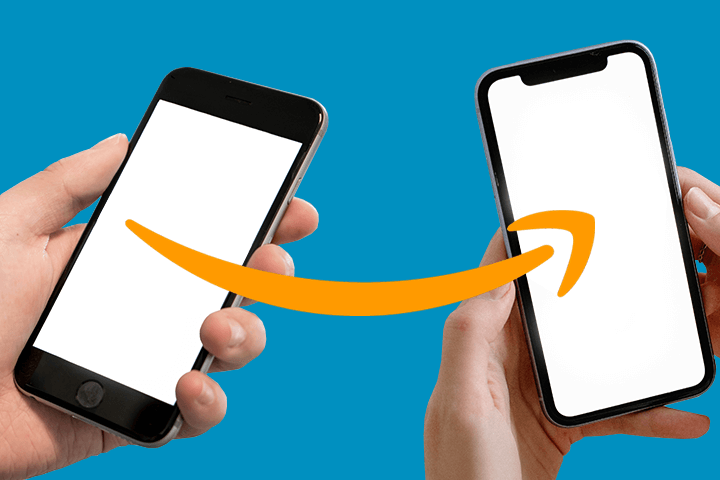Could Amazon rattle the mobile market with a cheap Prime tariff?

There are rumours abound that Amazon is looking to partner with a major US telco to offer mobile services through Prime. Is the Everything Store about to disrupt the market, or is this wild speculation – for the time being?
We’re used to CSPs bundling a discounted streaming subscription with their mobile plans, but could Amazon flip the proposition on its head by offering a mobile contract with Prime?
The tech giant has reportedly been in talks with telcos such as AT&T, T-Mobile and Verizon to offer a low-cost or even free mobile tariff with its Prime subscription to customers in the US, according to a report earlier this month from Bloomberg.
It’s a bold new ploy to boost the number of Prime subscriptions, which are stagnating following a price rise last year, as customers cut back on spending and streaming. If Amazon bundled a mobile service with Prime, it would likely lead to customers sticking with their subscriptions for the long-term.
All parties involved have however strongly denied Bloomberg’s report, with a spokesperson for Amazon stating that they are “always exploring adding even more benefits for Prime members, but don’t have plans to add wireless at this time” (emphasis mine). Verizon said: “Our company is always open to new and potential opportunities, but we have nothing to report at this time” (again, emphasis mine).
With reports that any deal could take months to agree and even longer to implement, are Amazon managing expectations or testing the waters for a firmer announcement further down the line?
Certainly, a cheap mobile plan by Amazon would undercut the pricing power of operators and potentially dilute their subscriber base. In fact, the news caused the price of some telecoms stocks to fall, including those companies allegedly involved in talks, with T-Mobile shares dipping by over 7%.
If such a plan came to fruition, Amazon would become an MVNO, purchasing services from a host operator to sell to consumers. The difference is the firm’s other lucrative ventures in e-commerce and cloud could allow them to massively subsidise plans, or even offer them for free, as is speculated. Amazon can certainly afford to offer free data plans as a loss leader if it chooses to, just as it has with Prime Video for years, because it drives revenue in other parts of the business empire.
Emile El Nems, Vice President of Moody’s Investors Service, said that any deal would increase competitive pressure on the existing companies, already under cost pressures from buying spectrum and building their networks: “we believe the company has the expertise to leverage customer relationships and successfully offer wireless services in a bundled manner that enhances the value proposition of being an Amazon Prime customer.”
If Amazon extends into wireless communications, the three major US telecom companies could be under serious competitive pressure, especially as they face substantial debt burdens.https://t.co/hTFRYg6D7R pic.twitter.com/rzucxRokYZ
— Moody's Investors Service (@MoodysInvSvc) June 9, 2023
A separate report by The Wall Street Journal named Dish Network as another more likely candidate for partnership, being a smaller player than the others and therefore more willing to try and shake up the industry. A deal would give Dish the backing to take on its larger competitors and help build its 5G network.
By combining mobile services with a broader stock of subscription-based services, customers can streamline their experience, simplify bill payments, and access various services from a single provider. Prime membership already offers a wide range of benefits, including free two-day shipping and video and music streaming, but Amazon is increasingly looking to lock customers into longer-term commitments; earlier this year it announced a prescription medication subscription, letting Prime members in the US order deliveries from its online pharmacy.
Amazon has already been investing in connectivity through its satellite internet subsidiary, Project Kuiper, aiming to launch a constellation of thousands of Low-Earth Orbit (LEO) satellites to provide broadband internet access globally, so a move into terrestrial connectivity isn’t an outrageous thought.
However, the memory of the flop that was the Fire Phone, discontinued a little over a year after its launch in 2014, might cause some hesitation. In fact, for all their successes in other areas, big tech has struggled to make much headway in providing connectivity services; last year, Meta shut down its Connectivity division after ten years of experimenting with satellites with the end-goal of delivering free connectivity to the globe.
What if Amazon acquired a telco and brought connectivity in-house instead? Certainly, it’s feasible that it could leverage its existing resources and use acquisitions to expand into the telecommunications sector, though entering this market would require compliance with many more legal and regulatory frameworks.
Whilst bundling offers convenience, customers can often find themselves stuck subscribing to services they don't need or want. If a customer is primarily interested in mobile services and doesn't want to use Prime’s streaming or e-commerce benefits, is there really any benefit for them to sign up, even for a nominally free tariff?
On the other hand, users may have to compromise on what mobile plan best suits them, depending on what Amazon’s tariffs would be. Additionally, customers might find themselves further trapped in the Amazon ecosystem, unable to change mobile provider without sacrificing a whole host of other services.
It’s also hard to see what the telcos looking to partner would get out of any deal; while small MVNOs are plentiful yet puny, one with the weight of Amazon’s other services behind it could prove to be a seriously disruptive force in the market.
By combining mobile services with its Prime subscription service, Amazon could attract new customers, increase loyalty among existing customers, and provide a comprehensive offering that encompasses connectivity, entertainment, and e-commerce options – but are the financial and regulatory dangers simply too great for it to risk its unenviable market position?
